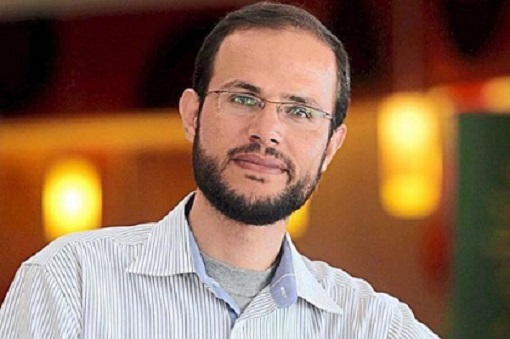My brother visited this weekend for Thanksgiving and told me he’d heard from an old friend I hadn’t seen since about 1983, Merle Bachman. We’d been friends back when I was in a Comp Lit doctoral program at UC Berkeley. Merle wrote poetry I recall and knew my brother from Brandeis. I had no idea she’d completed a PhD program in Yiddish literature, begun teaching and was about to publish her doctoral dissertation until Todd told me all this.
When I pursued my PhD degree (which I never completed) I spent one summer studying Yiddish at YIVO because I felt it was important to recover the richness of its almost slaughtered literary tradition. In fact, much of my life has been devoted to the idea of appreciating, preserving and recovering such traditions. It’s also the reason why I co-founded the Bay Area Jewish Music Festival with Gerry Tenny in the early 1980s.
I’m pleased to say that Merle’s upcoming book, Recovering Yiddishland: Threshold Moments in American Literature, appears to cover some of the same ground as I mentioned above:
According to traditional narratives of immigrant assimilation, Jews freely surrendered Yiddish language and culture in their desire for an American identity. In Recovering “Yiddishland” Bachman offers a challenge to this conventional literary history, returning readers to a threshold where Americanization also meant ambivalence and resistance. She reconstructs “Yiddishland” as a cultural space produced by Yiddish immigrant writers from the 1890s through the 1930s, largely within the sphere of New York City.
The book spotlights significant works by Yiddish immigrant writers that reveal unexpected and illuminating critiques of Americanization. The author takes a fresh look at Abraham Cahan’s Yekl and Anzia Yezierska’s Hungry Hearts. Bachman discusses the modernist poet Mikhl Likht, whose simultaneous embrace of American literature and resistance to English assimilation marked him as the supreme “threshold” poet. Combining sophisticated academic analysis of literary works with her own personal encounters with Yiddish writing, Bachman offers a provocative and highly readable contribution to Jewish literary history.
When I was growing up I used to spend a week in summer visiting my mother’s parents in their small Washington Heights apartment which they’d lived in for over 40 years. One day, she told me about what it was like to attend public school as a Yiddish-speaking immigrant child. She said that if the children spoke Yiddish in class their teacher beat them. This was the American way of acculturation. Beat it out of you. So no, many Jews didn’t freely surrender their language and culture. They realized that they had to do so or else.
In some small way, I think that is why Merle and I are doing some of the things we are doing now. Trying to recover some of these traditions that have been beaten out of us. It’s our form of resistance to the prevailing cultural homogenization of American culture. It’s our form of saying this is the unique legacy we bring to America’s cultural table.






